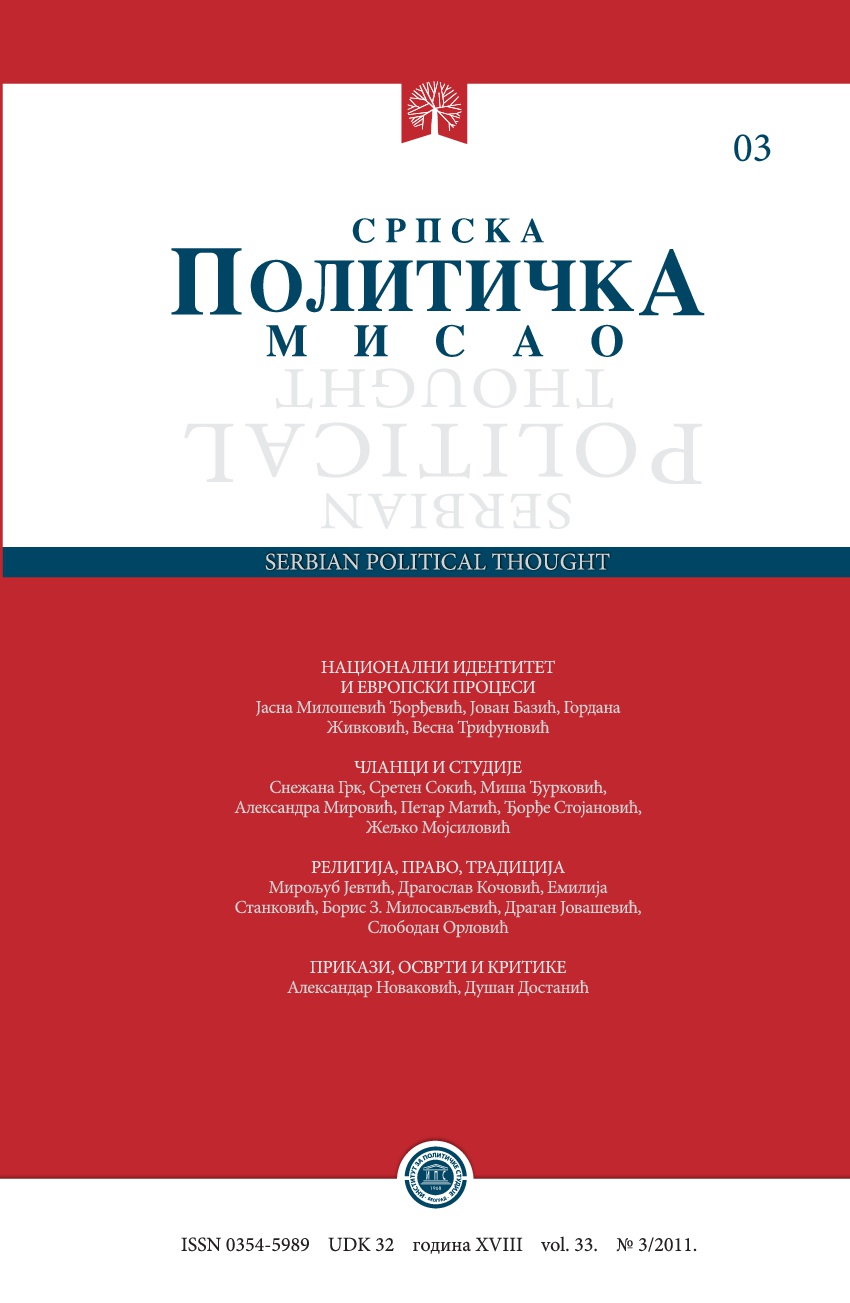Српско друштво и глобализација: између културног и политичког идентитета
Serbian Society and Globalization: Between the Cultural and the Political Identity
Author(s): Vesna Trifunović Subject(s): Museology & Heritage Studies, Cultural Anthropology / Ethnology, Present Times (2010 - today), EU-Accession / EU-DEvelopment, Globalization, Politics and Identity, Identity of Collectives
Published by: Институт за политичке студије
Keywords: cultural identity; religious identity; political identity; cultural rights;
Summary/Abstract: The societies in transition are referred to search for an external support to establish an internal order. These societies need some time to develop new political structures of their own, until then, they are referred to search for an external support so as to have an internal stabilization. In the perspective of the new world order, as in the previous epochs, relying on the support of others has its own price: it is often required from the societies which rely on others not to act in accordance with the assumptions of their own existence. By pinning all their hopes on the model of the community of states, like the European Union, and deetatisation of the economy and the areas, as a process which will lead to the connection on a global level, the states/societies in transition have carelessly lost one part of their power, which can be an introduction into the process of their disintegration. By making protectorates and so- called mandate areas, as the consequences of the external factor’s acting on the territory of the states/societies in transition, it comes to the demolishing of the stable statehood, whose indicator can be the loss of cultural independence. The delicate line of the connection between the global state territory and its part which has the character of the mandate area, requires its comprehensive insurance, above all, strong cultural action which will make possible to keep the cultural and religious identity of the ethnical- cultural groups on the whole territory. As the European charter of human rights says, cultural rights are guaranteed and, hence, it is surprising that the initiative of some member states of the European Union (Jun 2011) is that the Serbian cultural heritage, that is, medieval monasteries of the Serbian orthodox church in Kosovo and Metohija, should be taken by force from the treasury of the cultural heritage and, by intervening of UNESCO, declared to be the inheritance of the culture that they do not belong to – so- called Kosovo’s (Albanian’s). At the same time, it is surprising that there is not a continuous global state politics which will be directed to the presentation and protection of the Serbian cultural heritage to its own and world public – that would be a strong contribution to the establishing of the internal order in the Serbian society.
Journal: Српска политичка мисао
- Issue Year: 2011
- Issue No: 3
- Page Range: 61-75
- Page Count: 15
- Language: Serbian

